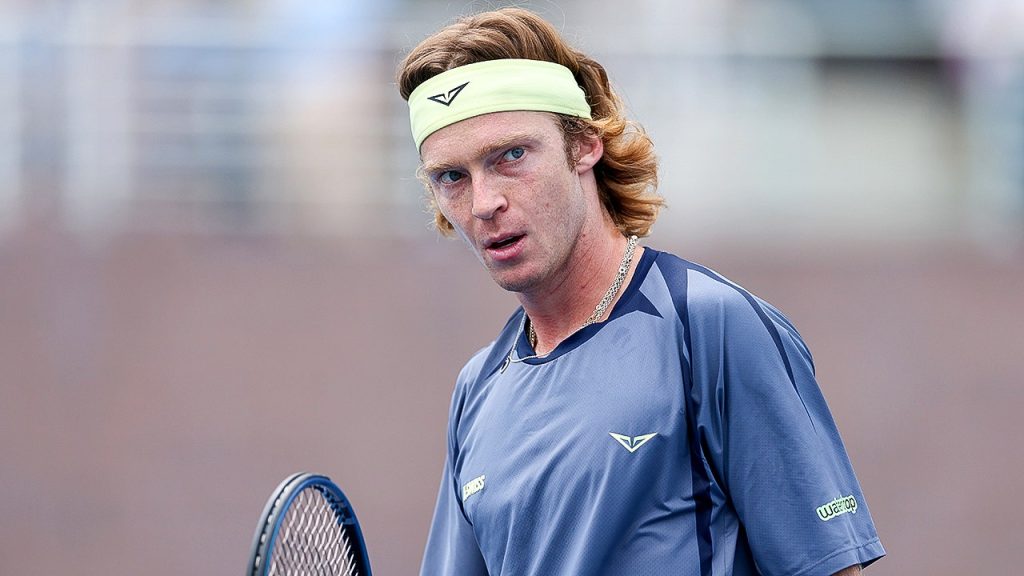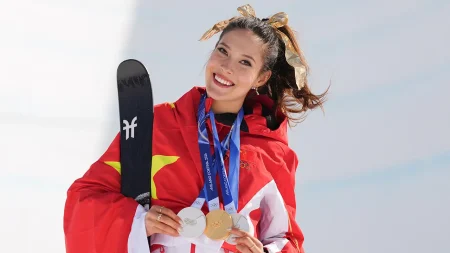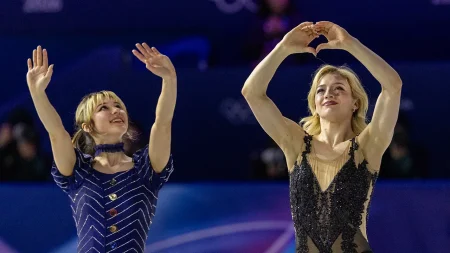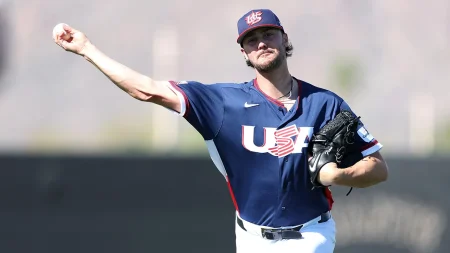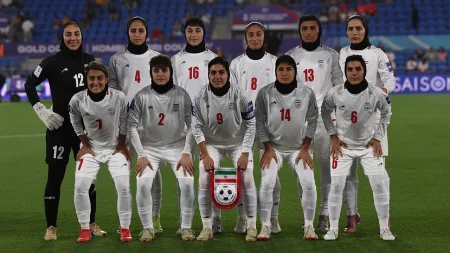Russian Tennis Star Andrey Rublev Questions Language Fine at U.S. Open
In the competitive atmosphere of the U.S. Open, Russian tennis star Andrey Rublev has found himself at the center of a debate over athlete expression after receiving a $3,000 fine for using foul language during his second-round match against American Tristan Boyer. The world No. 15 has been vocal about his disagreement with the penalty, arguing that self-directed comments should be treated differently than those aimed at officials or opponents. “When you are talking to yourself in a bad way, it’s my decision how I do it. You cannot, in my opinion, you cannot charge for this,” Rublev explained after advancing through his third-round match. He drew a clear distinction between his situation and what he considers legitimate infractions: “If you talk to the referee or umpire with bad words, yes, like when you do it towards someone or you scream on all courts, yes, obviously. But when you talk to yourself, it’s your decision how you talk.”
Rublev’s perspective highlights a common tension in professional sports between maintaining decorum and allowing for authentic emotional expression during high-pressure moments. The Russian player emphasized that strong language is a natural part of competitive sports, especially “in the crucial moments,” adding that it’s unrealistic to expect athletes to maintain perfect composure at all times. “It’s sports. It’s life,” he remarked, suggesting that everyone—not just athletes—occasionally uses colorful language when under stress. “I don’t believe all of us are super holy and never say bad words in the crucial moments.” His comments reflect a broader question about where to draw the line between necessary regulation and overly restrictive policing of athlete behavior.
The fine comes amid heightened scrutiny of Russian players at international tournaments, though Rublev isn’t the only Russian player to face penalties at this year’s U.S. Open. His compatriot and friend Daniil Medvedev received a much steeper fine of $42,500 for his widely publicized outburst during a first-round upset loss to Benjamin Bonzi. Medvedev’s fine came after he exploded in anger when the chair umpire allowed Bonzi another first serve following a disruption by a photographer crossing the court during match point in the third set. The incident highlights the varying degrees of punishment for on-court behavior and raises questions about consistency in enforcement.
Despite the controversy surrounding his fine, Rublev has demonstrated compassion toward his fellow Russian player. As the godfather of Medvedev’s children, Rublev offered support after Medvedev’s incident made headlines, saying, “If he wants to change and needs help he has me, a lot of other friends and family that will help him.” This glimpse into their relationship reveals the human connections that exist beyond the competitive nature of professional tennis, showing how players often rely on each other for emotional support within the pressurized environment of Grand Slam tournaments.
Rublev’s resilience was on full display during his third-round match against Coleman Wong, which turned into a thrilling five-set battle. After dropping the first set 6-2, Rublev fought back to win the next two sets 6-4, 6-3. When Wong forced a deciding set with a 6-4 win in the fourth, Rublev maintained his composure to secure the match with a 6-3 victory in the final set. This performance demonstrated the mental fortitude that top players must possess, especially when competing under the additional pressure of recent controversy. The challenging match showcased Rublev’s ability to focus on his tennis despite the distractions surrounding his fine.
Looking ahead, Rublev will face Canada’s Felix Auger-Aliassime, the 25th-ranked player in men’s singles, in the Round of 16 on Monday. This matchup presents another opportunity for Rublev to advance deeper into the tournament while navigating the complex landscape of professional tennis that extends beyond just the physical competition on court. As the debate about appropriate behavior and penalties continues, Rublev’s situation highlights the ongoing tension between the human, emotional elements of sport and the formal codes of conduct that govern professional tennis. Whether his outspoken stance on the fine will influence future enforcement remains to be seen, but his willingness to challenge what he perceives as an unfair penalty adds another dimension to his presence at this year’s U.S. Open.





